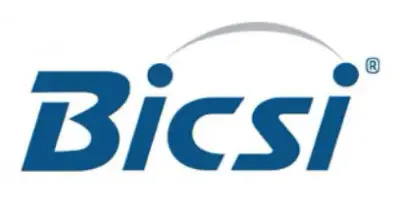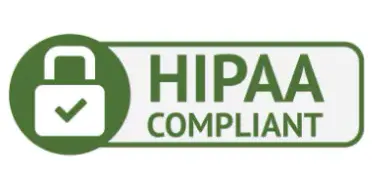
Key takeaways
- A well-chosen phone system consolidates calling, conferencing, and messaging to trim overhead costs.
- VoIP technology typically outperforms older landlines and can scale up or down quickly.
- Aspen Communications LLC focuses on reliability, which is crucial for entities like government agencies.
- Ongoing support—training, maintenance, integrations—helps maximize long-term return on investment.
- Real-world benefits include faster call handling, improved collaboration, and flexible remote work options.
- Always confirm the full cost structure to avoid hidden charges and find the best deal.
Cost-Effective Business Phone Systems That Keep You Connected
If you’re looking to stretch your budget without sacrificing high-quality communication in your organization, you’ve probably wondered how to get the best business phone systems for less. Affordable options do exist—and they’re surprisingly adaptable to a variety of needs. In fact, modern business phone solutions can help you unify your calling, conferencing, and messaging in one neat package. With the right choice, you’ll keep your teams connected, serve clients efficiently, and ensure that everyone—from federal agencies to local businesses—can reach you without a hitch.
Below, you’ll find a comprehensive review of how Aspen Communications LLC can support you with cost-effective and robust phone technology. We’ll talk about essential features, pricing, real-world scenarios, and more, all so you can make an informed decision. Ready to discover the steps toward saving money and boosting productivity? Let’s jump into the details.
Discover budget-friendly phone solutions
When you think of a “phone system,” you might picture a clunky landline with basic calling features. But times have changed. Today’s office phone solutions combine voice, video, and even text messaging into a single interface. Aspen Communications LLC offers packages that streamline connectivity and reduce your overall operational costs. By consolidating multiple services into one contract, you can keep expenses under control while still enjoying advanced communications.
A closer look at affordability
Affordability often comes from leveraging newer technology. Here’s where Voice over Internet Protocol (VoIP) voip takes center stage. Instead of paying for old-style phone lines, a VoIP-based system uses your internet connection to handle voice calls. Think of it like email for your ears—data is transmitted digitally, so there’s no need for separate phone wiring. Because you already have an internet connection, VoIP can lower your monthly costs substantially.
- No extra wiring: You don’t have to revamp your building’s infrastructure.
- Lower long-distance charges: Many VoIP packages include unlimited or low-rate long-distance plans.
- Easy scaling: Need more lines? Just add user licenses and handsets, instead of installing new cables.
Why Aspen Communications LLC stands out
Aspen Communications LLC specializes in understanding the unique requirements of government agencies and commercial sectors, especially in the Southwestern U.S. If you oversee communications for a state department or a mid-sized business in Arizona or New Mexico, for example, their tailored packages could be a sweet spot between budget and functionality.
They also prioritize reliability by partnering with trusted carriers and hardware providers, ensuring your phone system is both cost-effective and dependable under pressure. This level of durability is especially important for organizations that manage emergency calls or regularly handle sensitive information. A reliable system helps maintain trust, meet critical demands, and ensure consistent communication when it matters most.
Simplified management
When one provider manages your phone lines, voicemail, and conferencing tools, everything runs more smoothly. You save time, simplify troubleshooting, and avoid juggling multiple support teams. This streamlined approach reduces confusion, improves efficiency, and allows your team to focus on what matters most—serving your customers effectively. Using an integrated dashboard or an online portal, you can:
- Add new extensions without calling a technician.
- Update user permissions for sensitive lines.
- Monitor call flows during peak hours to optimize staffing.
If you’re looking to avoid multiple contractors and separate bills, a one-stop shop like Aspen Communications LLC can offer a simpler alternative. That means fewer administrative tasks and more time focusing on what truly matters—serving your constituents or clients in the most effective way possible.
Understand the core features
Choosing the right communication system starts with understanding its core features. These features directly impact long-term efficiency, scalability, and value. It’s easy to be drawn to platforms loaded with advanced tools, but if you won’t use most of them, you’re paying for bells and whistles that don’t serve your needs. On the other hand, going too minimal could create roadblocks as your organization grows. The smart move is finding the middle ground—prioritizing features that align with your current workflows while leaving room for future expansion. Start by identifying what’s essential, what’s helpful but not critical, and what you can skip entirely. This level of clarity helps you avoid overpaying or underpreparing. Ultimately, the best system is one that supports your goals now and adapts as those goals evolve, without forcing a full overhaul down the line. A thoughtful approach today leads to smoother operations tomorrow.
Essential calling tools
At the heart of any telephony solution is the ability to make and receive calls seamlessly. Basic calling tools typically include:
- Caller ID: See who’s calling to screen or prioritize important numbers.
- Call transferring: Move calls from one department to another without dropping them.
- Voicemail-to-email: Receive audio messages straight to your inbox for faster follow-up.
For daily operations, certain features are essential. Call transferring, for example, ensures customers reach the right person quickly—crucial for customer service teams. It prevents frustration and wasted time. In high-stakes situations, a dropped call or missed connection could mean losing a valuable client or contract, making reliable call handling a non-negotiable part of your system.
Advanced communication options
Advanced communication options are crucial for modern teams, particularly when remote collaboration is an integral part of daily operations. If your team frequently manages conferences or requires real-time interaction, tools such as video conferencing, instant messaging, and screen sharing prove invaluable. Aspen Communications LLC combines these features into a single, streamlined platform, eliminating the hassle of managing multiple apps. Presence indicators add even more value by showing whether colleagues are available, busy, or away. This small yet powerful detail helps reduce missed connections, avoids unnecessary interruptions, and ensures communication flows smoothly—ultimately saving time while boosting productivity and maintaining efficient and effective teamwork.
Scalability for a growing agency
Is your department expanding? Need to onboard five new employees next week? With a cloud-based system, you can simply add new extensions via an online portal and plug in an additional handset. No scrambling around for phone line installations or third-party services. This flexibility is especially useful if you have seasonal fluctuations—like a local government office that doubles its staff during tax season.
Reliability in emergencies
If you’re a government agency, mission-critical reliability is paramount. You can’t afford downtime when dispatch lines or department phones need to be open 24/7. Aspen Communications LLC claims to offer robust failover mechanisms, including automatic rerouting to a secondary server in the event of issues with the primary one. While no system is 100% bulletproof, having redundancy in place provides peace of mind.
Security you can trust
Alongside reliability, security is a major concern. Whether you’re dealing with confidential citizen data or sensitive commercial contracts, you need encryption and secure data handling. Many modern VoIP systems support end-to-end encryption, and Aspen Communications LLC reportedly includes a strong set of security protocols. These precautions might not be flashy, but they are essential for compliance in specialized fields like healthcare, finance, or government work.
Hidden vs. transparent costs
When evaluating any phone system, be sure to ask about the full scope of costs, including any additional fees or expenses. Some providers lure you in with a low per-line rate, then tack on additional fees, such as licensing costs, hardware lease expenses, or a surprise setup charge. One point in Aspen Communications LLC’s favor is that their pricing structure is generally transparent. You’ll want to confirm all potential fees, such as international call rates or specialized equipment, to get a complete picture. No one enjoys unexpected costs that arise mid-contract.
Return on investment
Affordability isn’t just about your monthly bill. Think about what you gain in productivity and efficiency. Suppose your employees can handle calls more quickly, route them efficiently, and reduce hold times. In that case, your customers (or constituents) will notice, and that can translate into better relationships and potential cost savings in the long run. Harvard Business Review notes that even modest tech investments can yield high ROI. That includes improved call handling, customer satisfaction, and reduced operational bottlenecks. Even a relatively modest system can pay for itself in a short period if it boosts overall satisfaction and streamlines workflows.
Negotiating deals for larger teams
If you manage a department with 50 or more employees, it’s definitely worth discussing volume discounts with a representative. Providers often have wiggle room for bulk pricing if you’re willing to commit to a multi-year contract. With Aspen Communications LLC, you can explore custom bundles that might include hardware upgrades or even dedicated account management support. A good rule of thumb: never be afraid to ask for a better rate if you’re bringing a sizable amount of business.
Explore the business phone system benefits
Whether you manage a government agency in Texas or operate a small restaurant chain in New Mexico, cost-efficiency and performance are key concerns. These systems aren’t just about technology—they’re about solving real problems. For example, streamlined communication can reduce missed messages, improve team coordination, and lower overhead costs. Real-time features like call routing, messaging, and video conferencing make daily operations smoother and more responsive. By examining how these tools perform in everyday scenarios, you can better evaluate their impact and ensure a smart, cost-effective investment.
Government agency applications
State and local government offices often involve high call volumes, public safety lines, and multi-department coordination. A robust but flexible phone solution ensures that calls are directed quickly, staff remain connected, and critical lines stay open around the clock. Since budgets can be tight in public institutions, cost-effective solutions that also handle emergency routing or specialized departmental workflows can be a game-changer.
Let’s say you’re a director in a municipal office that fields thousands of calls monthly. With an adaptable communication platform, you can set up auto-attendants, update local emergency announcements, or route maintenance requests to the correct team all without the need for complicated red tape. You’ll save both time and money while improving public service quality.
The commercial sector needs
In the commercial world, time is often money. You might oversee a rapidly growing retail chain that needs new lines each quarter, or you might handle a busy customer support center. By consolidating your communication on a single platform, your teams can collaborate across multiple locations. That could mean a quicker resolution to customer issues, helpful multi-party conference calls with vendors, or rapid scaling during peak seasons.
You’ll also benefit from advanced analytics, which let you track call durations, peak calling times, and busy departments. Those insights can inform staffing decisions and shift schedules, ensuring you’re never short-handed when the phone starts ringing off the hook.
Specialized markets in the Southwest
Aspen Communications LLC focuses on serving specialized markets in the Southwestern United States, giving them a strong understanding of the region’s unique communication needs. This local focus means they’re better equipped to address challenges like inconsistent rural internet connectivity, extreme weather conditions, and the growing demand for bilingual customer support. If your business operates in remote desert areas or serves a diverse population that includes Spanish-speaking clients, working with a provider familiar with these circumstances is a major advantage. Local expertise matters especially when quick, on-site support is needed or when maintaining reliable internet-based phone services is critical to operations. Aspen’s regional knowledge can help reduce downtime, improve service reliability, and ensure smoother day-to-day communication. In areas where national providers may fall short, having a partner who understands the landscape can make a noticeable difference. For businesses in the Southwest, this specialized attention translates into better service and long-term efficiency.
Supporting remote or hybrid teams
Supporting remote or hybrid teams is more important than ever, especially for government departments and commercial firms with mobile employees. Even before remote work became the norm, many organizations had staff traveling for site visits, attending conferences, or working from home occasionally. Modern phone solutions make this easy by allowing calls to be answered directly from secure mobile apps. This setup keeps teams connected without relying on traditional desk phones. The result? Greater flexibility, improved responsiveness, and fewer missed calls. Plus, it reduces the need for large physical office spaces, helping cut down on overhead costs without sacrificing communication quality.
Check additional support services
Plenty of phone providers can sell you a box of hardware or a software package, but what happens after the sale? That’s where ongoing support and professional services become critical, especially if you’re dealing with complex setups like multi-location government offices or specialized commercial installations.
Training and onboarding
Switching to a new platform can be intimidating for employees. Training sessions, particularly hands-on or interactive video tutorials, can help your staff get comfortable faster. Aspen Communications LLC may offer one-on-one onboarding or group training sessions so your team knows how to:
- Create conference calls.
- Forward calls to their mobile phones.
- Use web-based dashboards for call analytics.
This extra hand-holding ensures minimal downtime during the transition. The faster everyone adapts, the sooner you’ll reap the financial and productivity benefits of your updated communication system.
Ongoing maintenance
Technology isn’t infallible. You need a support team that can handle glitches, outages, or hardware failures swiftly. With some providers, you might wait for hours—sometimes days—before help arrives. If you manage critical infrastructure like a 24-hour emergency call center, that’s unacceptable. Look for a provider with robust service-level agreements (SLAs) guaranteeing prompt response times. Ask about dedicated phone support or 24/7 help desks, especially if your lines stay open around the clock.
Integration with existing systems
One of the best ways to save money in the long run is to integrate your phone solution with existing services. For instance, linking your telephony platform with a customer relationship management (CRM) tool might allow you to pull up a caller’s details the moment their number appears on caller ID. That synergy cuts call-handling time and reduces the chance of manual data entry errors. Aspen Communications LLC, for example, can often coordinate with other vendors to ensure your new system fits seamlessly into your broader IT ecosystem.
Next-level add-ons
Growth may require advanced features like call analytics, AI-powered call routing, or full contact center capabilities. That’s why it’s important to discuss the provider’s roadmap during your initial purchase. Do their future offerings align with your long-term goals? A scalable, flexible system saves you from costly overhauls in the future. By choosing a forward-thinking provider, you ensure your setup can adapt to new technologies and business demands without disruption. This proactive approach helps you stay competitive while avoiding the hassle of replacing outdated tools down the line.
Get More Value with Affordable and Reliable Business Phone Systems
By now, you’ve seen how a strategically chosen business phone systems can fit your organization’s budget without skimping on reliability or essential features. Whether you manage a federal office, a local department, or a business in the Southwestern region, the right phone solution can streamline your day-to-day operations and leave more room in your budget.
If you’re ready to explore tailored solutions that match your specific requirements, consider getting in touch with Aspen Communications LLC. Request a customized quote, ask detailed questions about features, and see how they handle training and ongoing support. A little time spent researching now can save you a lot of hassle (and money) in the future.
Remember, every call you handle is a chance to serve the public, close a business deal, or help a customer in need. When your lines are dependable and your staff is well-supported, those conversations flow naturally, and that’s when you truly stand out. So don’t let outdated phone setups hold you back. Take that next step confidently, and enjoy both budget savings and crystal-clear communications.
Ready to Upgrade? Get Your Business Phone System Quote Today
Don’t let outdated communication tools hold your organization back. Aspen Communications LLC is here to help you maximize your budget with affordable, reliable, and scalable business phone systems. Whether you’re a government agency, local department, or growing business in the Southwest, you deserve technology that keeps you connected and productive.
Contact Aspen Communications LLC today to request a free customized quote and discover how the right phone solution can save you money while improving performance.
Frequently Asked Questions
1. How complicated is the setup process?
The setup process is usually straightforward. Most modern systems are built to minimize downtime, with technicians completing much of the work remotely. On-site disruptions are typically brief and well-managed, ensuring a smooth transition without major interruptions to your daily operations or productivity.
2. Do I need special hardware for VoIP?
For VoIP, you usually only need IP-compatible phones and a reliable internet connection. Many vendors provide or recommend the right equipment. Ensure your network has sufficient bandwidth to support multiple calls simultaneously for clear, uninterrupted communication. No complex or specialized hardware is typically required.
3. Will internet calls sound clear?
Yes, internet calls are typically clear. With proper network configuration and sufficient internet speed, VoIP call quality can match or even exceed that of traditional landlines. A strong connection ensures minimal delays, echoes, or dropouts, providing reliable and professional-sounding communication for your team and clients.
4. What if my internet goes down?
Many systems include automatic failover to mobile phones or alternate lines. Ask your provider about redundancy options to keep essential communications running.
5. How do I transition without confusing customers?
Transitioning without confusing customers is possible with careful planning. Keep your existing phone numbers whenever possible, and use a clear, friendly auto-attendant to guide callers. If introducing new numbers, announce them well in advance through multiple channels. Also, forward old numbers for a few months to ensure a smooth
6. Are these solutions secure enough for sensitive data?
Yes, reputable communication providers use encryption and secure data centers to protect sensitive data. It’s essential to verify that the provider meets or exceeds industry-specific compliance standards, particularly if your organization handles confidential or regulated information. Prioritizing security ensures your communications remain private, reliable, and aligned with legal and operational requirements.











